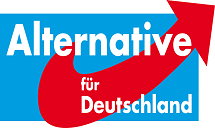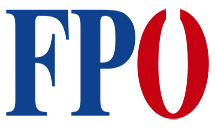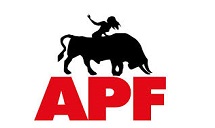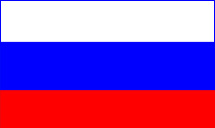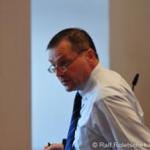Executive Summary:
Germany’s National Democratic Party (Nationaldemokratische Partei Deutschlands or NPD) is a far-right political party that advocates racist, anti-Semitic, and anti-Muslim views. According to the German intelligence service, the NPD rejects the concept of liberal democracy. The NPD is hostile towards both the United States and Israel. The party is opposed to multiculturalism and is concerned about the “foreign infiltration” (Überfremdung) of Germany, namely the perceived Americanization and Islamization of German society. The NPD considers the presence of immigrants in Germany—regardless of whether they hold German citizenship—to be an attack on the German ethnic community (Volksgemeinschaft) and advocates deporting immigrants to their respective countries of origin.
The NPD was founded in 1964. Despite some initial popularity among voters during the 1960s, the party was not able to sustain its success and became a marginalized political force for the subsequent three decades, during which time the group experienced financial difficulties and a steep decline in membership. Following German reunification in 1990, the NPD grew its support base in many of the regions of former East Germany, entering several state parliaments in the late-1990s. During this time, the NPD strategically repositioned itself by opening the party up to neo-Nazis and becoming more overtly radicalized. According to 2017 statistics from Germany’s domestic intelligence service (Bundesamt für Verfassungsschutz or BfV), the NPD has a membership of 4,500 people.
According to the German intelligence service, the NPD opposes liberal democracy and appears to support an authoritarian state. Though the NPD officially rejects violence, racist gangs have reportedly carried out violence on behalf of the group. The NPD claims to pursue change through Germany’s democratic process but ultimately, according to the German Interior Ministry, the party’s intention is to systematically combat Germany’s democratic constitutional state. Although German authorities have charged the NPD with violating constitutional bans on Nazi symbols and propaganda, several attempts to ban the party have failed.
German authorities attempted to ban the NPD first in 2003, following a perceived rise in far-right crimes. The investigation collapsed, however, after it was revealed that many key party members were undercover law enforcement officers or paid informants. Following the discovery of the neo-Nazi terrorist cell National Socialist Underground (Nationalsozialistischer Untergrund or NSU), which reportedly murdered at least 10 people (mostly of Turkish origin) between 2000 and 2007, the German Federal Council (Bundesrat), a legislative body representing Germany’s 16 states, made a second attempt to ban the party in 2013.
The German Federal Council renewed their bid to make the party unconstitutional in March 2016, amidst a surge in anti-migrant rhetoric from the NPD and its followers, and a rise in far-right violence. In an unprecedented move, Germany’s top constitutional court opened a hearing into banning the group. On January 17, 2017, the Federal Constitutional Court (Bundesverfassungsgericht) rejected the proposed ban on the NPD. The court noted that the NPD resembles the Nazi party and its objectives were unconstitutional, but ruled that the NPD did not have enough political weight to pose any actual threat to Germany’s democratic system. The NPD criticized the ruling but did not alter its ideological positions and, instead, reaffirmed its nationalist beliefs.
However, in June 2017, the German government passed legislation to deny federal funding to any political party with aims hostile to the German constitution in a move specifically intended to target the NPD and incapacitate it by other legal means. In early 2018, Germany’s constitutional bodies filed their applications with the Federal Constitutional Court, which ultimately decides whether the new legislation is applicable to the NPD. In response, however, the NPD submitted its complaint, stating that the new legislation itself was unconstitutional. The court’s decision is expected for 2019.
Though the party saw an upswing in support in the mid-2010s, the NPD has been losing voters to the competing far-right group Alternative for Germany (Alternative für Deutschland or AfD). In the September 2016 regional parliamentary elections for the state of Mecklenburg-Western Pomerania, the NPD’s proportion of votes fell below the 5 percent of votes needed to maintain a seat. As such, the NPD is no longer represented in any parliament in Germany, and was slated to lose about 1.3 million euros in state funding. Despite having faced a constitutional ban, major electoral setbacks, and a loss of federal funding, the group has retained substantial influence in parts of German civil society, and group’s leaders retained a degree of influence in Germany and in Europe. Former NPD chair Udo Voigt, for example, has served as an NPD representative in the European Parliament since 2014 and will run for re-election in May 2019. Before being elected as a Member of the European Parliament (MEP), Voigt had received a 10-month suspended sentence for incitement and expressing support for Hitler’s Schutzstaffel (SS).
In June 2018, the NPD began conducting street patrols in the cities of Berlin and Cottbus to establish so-called “safe zones” (Schutzzonen). The NPD claimed that small groups of volunteers were going to patrol city centers and subway stations to help ensure public safety due to “highly overburdened authorities [that] can no longer guarantee [it].” However, critics argued that the NPD campaign was merely an attempt to regain influence and recruit voters, as the volunteers left the premises quickly after posting pictures on social media. In January 2019, NPD party members launched street patrols in the Bavarian town of Amberg in response to a series of violent attacks perpetrated by asylum seekers. The assailants were aged between 17 and 19 and from Afghanistan, Syria, and Iran. The NPD posted pictures to social media of its members patrolling the town in vests labeled “We’re creating safe zones.” An NPD statement on Facebook declared, “When we say we will create protection zones in Amberg, we mean it.”
Doctrine:
The NPD is a far-right extremist political party and has been described by the German intelligence service as “racist, anti-Semitic and revisionist.” In the 1990s, the NPD radicalized further to the point of neo-Nazism. The NPD spreads militant racism, anti-Semitism, and hostility toward the United States, which the NPD considers to be “Jewish controlled.” According to its official 2010 policy “Work. Family. Fatherland.” (Arbeit. Familie. Vaterland), the NPD opposes multiculturalism due to concerns about the perceived “foreign infiltration” (Überfremdung) of Germany, in particular so-called Americanization and Islamization. The NPD also opposes same-sex marriage, which was legalized in Germany in June 2017.
The NPD promotes a nationalist form of “socialism” in an effort to resist immigration and the economic effects of globalization. According to the German intelligence service, the NPD opposes liberal democracy and appears to support an authoritarian state.
The NPD calls for reversing the post-World War II shift of the German-Polish border and restoring Germany’s borders to their status at the end of 1937. In addition, several NPD members have praised leading members of the Nazi party while seeking to revise the history of the Nazi period. In the course of the party’s radicalization since the 1990s, several militant neo-Nazis, among them individuals with previous criminal convictions, have become members of the NPD’s executive committee.
The NPD has also promoted anti-Muslim populist rhetoric. Party members have exaggerated or fabricated criminal offences committed by Muslims in order to fuel racism and anti-immigrant sentiments, as well as justify violence against refugees in Germany. For example, in December 2017, an Afghan refugee fatally stabbed his 15-year-old ex-girlfriend. The NPD responded on social media, falsely claiming that an increasing number of German women have become victims of “crimigrants” (Krimigranten), an invented defamatory compound word of criminals and immigrants. The NPD blamed the government’s open asylum policies, condemning that ruling “pro-immigration fanatics have opened the doors for killers and other criminals to Germany.” In August 2018, two refugees fatally stabbed a German man in Chemnitz. In response to false rumors that the German man was defending a woman from sexual assault, right-wing protestors—including NPD party members—took to the streets, leading to violent clashes with the police. In January 2019, NPD members launched street patrols to establish so-called “safe zones” in the Bavarian town of Amberg. The patrols were formed in response to a series of violent attacks by asylum seekers, aged between 17 and 19 from Afghanistan, Syria, and Iran.
German neo-Nazis continue to perpetuate racist ideas, including by saying that “members of other races always remain physically, mentally and spiritually a foreign body.” The NPD considers the presence of immigrants in Germany—regardless of whether they hold German citizenship—to be an attack on the German ethnic community (Volksgemeinschaft). Therefore, the NPD advocates deporting immigrants to their respective countries of origin. The NPD also advocates Germany’s exit from the European Union and NATO.
In June 2021, the Jerusalem Post noted that members of the NPD had supported the Boycott, Divestment, Sanctions campaign against Israel. The campaign was declared antisemitic by the German parliament in 2019.
Organizational Structure:
The NPD is organized similarly to mainstream German political parties, in accordance with the German Political Parties Act. The group has a federal executive board and 16 state chapters, as well as several county- and regional-level entities. Udo Pastörs, a known hardliner, stepped down as interim chairman in November 2014. He was replaced by Frank Franz, who reportedly belongs to a more moderate wing of the NPD.
The party had a membership of 4,500 as of 2017, a considerable reduction compared to the party’s 1968 peak of approximately 28,000 members. In 1994, political scientist Jürgen W. Falter determined that three factors—namely dissatisfaction with the political elite, feelings of social disadvantage, and a general far-right extremist attitude—drive voters to elect far-right political parties in Germany. According to Falter, younger men from rural areas in Eastern Germany therefore represent the majority of NPD voters.
The NPD has four sub-groups, the Young Nationalists (Junge Nationalisten or JN; formerly known as Young Nationalist Democrats), the Circle of National Women (Ring Nationaler Frauen or RNF), the Local Politics Union of the NPD (Kommunalpolitische Vereinigung der NPD or KPV), and the German Voice Publishing Company (Deutsche Stimme Verlagsgesellschaft mbH or DS Verlag).
The NPD’s political work is based on what it calls a “four pillar strategy.” As part of its first pillar, “Fight for Hearts and Minds” (Kampf um die Köpfe), the NPD seeks to acquire public acceptance by means of “nationalrevolutionary [sic] grass-roots work.” Secondly, under the “Fight for the Street” (Kampf um die Straße) pillar, the party aims to spread its ideology and influence public opinion. Under the third pillar, “Fight for the Parliaments” (Kampf um die Parlamente), the NPD endeavors to win seats in federal and regional parliamentary elections. Fourthly, the “Fight for the Organised Will” (Kampf um den organisierten Willen) pillar involves cooperating with various like-minded stakeholders to form a “comprehensive national opposition movement” under NPD leadership. The NPD primarily communicates and networks with supporters and recruits through the Internet. According to the Verfassungsschutzbericht, NPD continues to focus their demonstrations and campaigns against migrants.
In September and December 2022, the NPD attempted to establish more of a cross-organizational collection movement with other groups across the extreme right wing when they organized “Deutschestimme” (German Voice) days filled with networking events. The event failed to attract large numbers of attendees. Furthermore, according to the Verfassungsschutzbericht, low event attendance is only one of the NPD’s ongoing problems. The group also struggles with an internal factional struggle between “preservers” and “reformers” and limited financial opportunities.
Financing:
Germany’s political party legislation mandates that each political party receives 0.85 euros in public funding for every valid vote it gets in European, federal, or regional elections until a party receives four million votes, after which it receives 0.70 euros per vote. In order to be eligible, parties must secure 0.5 percent of the vote in European or federal elections, and 1.0 percent in regional elections. Parties also receive 0.38 euros in public matching funds for every euro they receive in donations, up to 3,300 euros.
As a result of losing state parliamentary seats in the September 2016 regional elections in the northeastern state of Mecklenburg-Western Pomerania the NPD lost about 1.3 million euros in annual funding from the state. In addition, the NPD received only 0.4 percent of votes in the 2017 federal parliamentary elections, which further deteriorated the party’s financial situation. However, the NPD still received 852,000 euros from the state for 2017 and remained eligible for several tax benefits.
After the proposal to ban the NPD failed, the German parliament (Bundestag) voted to amend Article 21 of the German constitution and end financing for “anti-constitutional” parties on June 22, 2017. The measure was clearly targeted at the NPD. In early 2018, all three of Germany’s constitutional bodies—council, government, and parliament—filed their applications with the Federal Constitutional Court, which ultimately decides if the new legislation applies to the NPD. In response, the NPD submitted its complaint, stating that the new legislation itself was unconstitutional.
Oral proceedings were held at the Federal Constitutional Court on July 4, 2023, to determine whether the NPD could be excluded from state party funding. A decision was not immediately released. Financial figures from 2022 were not released, but in 2020, the NPD received 350,000 euros of taxpayers’ money and was scheduled to receive the same amount in 2021.
Since May 2014, the NPD is represented in the European Parliament with one member, Udo Voigt, and receives EU funding. The NPD is determined to keep its seat in the upcoming European election in May 2019. The NPD also received significant financial support from neo-Nazi Jürgen Rieger, who belonged to the party from 2006 until his death in May 2010. In 2017, the NPD received 757,000 euros from three NPD sympathizers, according to a report in the Spiegel.
In November 2013, the German Federal Constitutional Court fined the NPD 1.27 million euros due to errors in the party’s financial accounting. The fines were deducted from the NPD’s public funding.
















